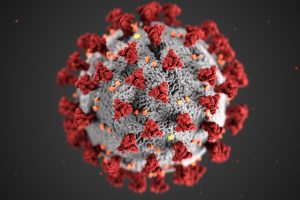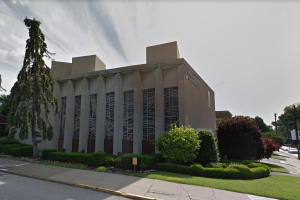(Editor’s Note: This story contains content that some readers may find disturbing.)
The United Nations on Friday released a “searing” report on the human rights situation in South Sudan, documenting what the human rights office called a military-perpetrated “scorched earth policy” against civilians.
The report detailed shocking violence perpetrated against South Sudanese, including rape and sexual violence and “cases of civilians being burned alive and cut to pieces.” The report says many of the violations may amount to war crimes and/or crimes against humanity.
The majority of civilian casualties appear to be not from combat but are the result of systematic, targeted killing, the report says. Cases of sexual violence were particularly horrendous, the Office of the U.N. High Commissioner for Human Rights (OHCHR) said in a news release.
The assessment team – sent by the High Commissioner for South Sudan – focused on the worst affected areas – Unity and Upper Nile states as well as Western and Central Equatoria – and emphasized violations that took place in 2015, the OHCHR said.
The report describes pervasive and widespread sexual and gender-based violence by all parties and accuses government forces of committing rape as a weapon of war. Between April and September 2015, the team recorded over 1,300 rape reports from Unity, just one of the country’s 10 states. Women and girls have been reduced to a commodity and were regularly taken along with property by Sudan People’s Liberation Army soldiers in raids of civilian towns and villages.
The victims include women and girls from across ethnic groups; young girls in particular have been targeted for abductions and sexual slavery, the report says. The violations are characterized by extreme violence that often resulted in the deaths of the victims.
The report is only a snapshot of the whole picture, said High Commissioner for Human Rights Zeid Ra’ad Al Hussein. “This is one of the most horrendous human rights situations in the world, with massive use of rape as an instrument of terror and weapon of war – yet it has been more or less off the international radar,” he said.
Children in general have borne the worst violence and there has been an increase in violence targeting children, including rape of both boys and girls.
The report also found thousands of minors recruited as child soldiers, but notes that the scope of the problem is likely much larger than the 15,000 to 16,000 recruits recorded last year by the U.N. children’s program, UNICEF. There has been an increase in the use of child soldiers: 617 reports from 2014 compared with 163 a year earlier. The report accuses local government leaders of mobilizing child soldiers, who are often organized by tribal identity.
The OHCHR accused all sides of systematic human rights violations since the conflict began in December 2013, but said Friday that state forces bore the “greatest responsibility” for violence in 2015 since the opposition has been weakened.
The SPLA became South Sudan’s official standing army when the country gained independence in 2011; as of the end of 2015, there are an estimated 100,000 SPLA soldiers, a figure that does not include militias or armed youth groups. Beginning in December 2014 there are reports of abductions and forced recruitment of child soldiers by the SPLA.
According to credible sources, the OHCHR says, soldiers have been permitted to rape women and pillage homes in lieu of wages. Due to a culture of impunity, stigmatization and apparent concerted efforts to target and punish civilians, few women have reported their rapes. Women have been killed for trying to resist the brutal violence or even for looking their rapists in the eye, the report says.
Justice in general has been scarce due to a “chronic failure to ensure a modicum of responsibility” for crimes, the report says. In the capital Juba, “there is no memory of police ever arresting anyone for murder.” The judicial system is defined by its arbitrariness and characterized by a lack of oversight, lengthy pre-trial detention and detention for violations that do not constitute crimes under national or international law.
The U.N. itself is under increased scrutiny after peacekeepers were accused of abuses and rape, mostly in the Central African Republic and Democratic Republic of Congo. Samantha Power, the U.S. Permanent Representative to the U.N., said on Thursday there is a climate of impunity around peacekeeping missions and called for peacekeepers to be held accountable by their home countries. Last year there were 69 allegations of rape reportedly perpetrated by U.N. peacekeepers; this year there have been 25, more than half of which involve children.
Last month, the U.N. apologized for its failure to protect civilians against an attack at a peacekeeper-administered camp in Malakal that killed at least 25 people and injured over 120 more. The camp, much of which was burned to the ground, was home to 50,000 people who have fled violence elsewhere in the country.
More than two million people have been displaced and tens of thousands have been killed in South Sudan since the outbreak of violence in 2013, according to U.N. figures. The true extent of the violence is unknown as the death toll varies widely: The International Crisis Group, a non-governmental organization that documents conflict, said in November that at least 50,000 people have been killed in direct conflict but many more died as a consequence of the civil war, including from starvation and lack of healthcare. Many deaths go unrecorded: U.N. peacekeeping chief Herve Ladsous said this week that the organization has simply lost count.
(Image: Timothy McKulka/USAID)




